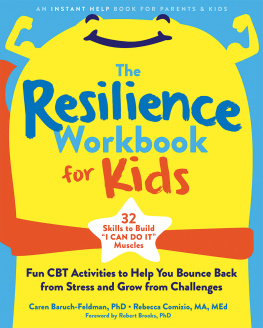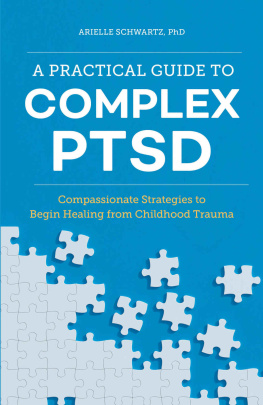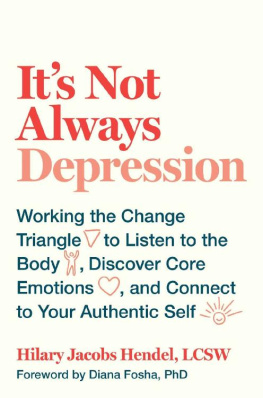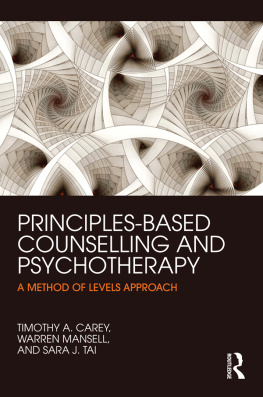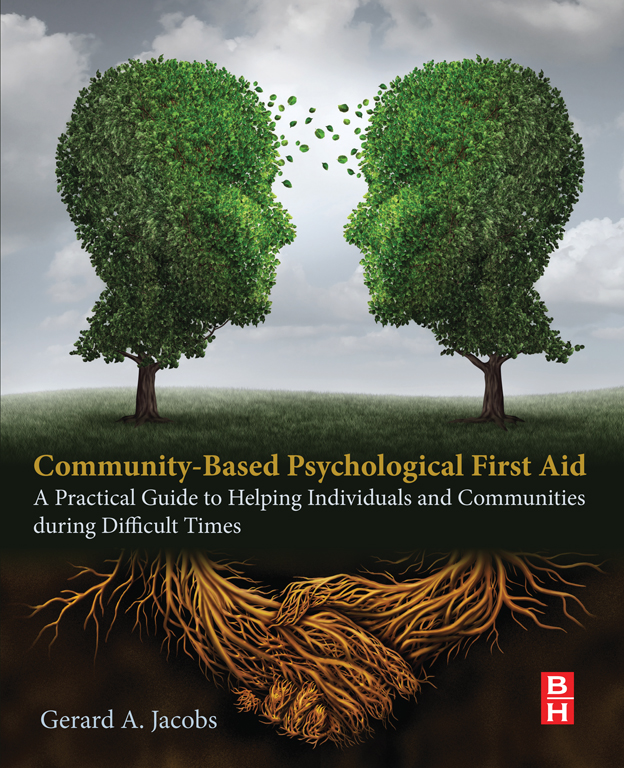Community-Based Psychological First Aid
A Practical Guide to Helping Individuals and Communities during Difficult Times
Gerard A. Jacobs
Table of Contents
Copyright
Butterworth-Heinemann is an imprint of Elsevier
The Boulevard, Langford Lane, Kidlington, Oxford OX5 1GB, UK
50 Hampshire Street, 5th Floor, Cambridge, MA 02139, USA
Copyright 2016 Elsevier Inc. All rights reserved.
No part of this publication may be reproduced or transmitted in any form or by any means, electronic or mechanical, including photocopying, recording, or any information storage and retrieval system, without permission in writing from the publisher. Details on how to seek permission, further information about the Publishers permissions policies and our arrangements with organizations such as the Copyright Clearance Center and the Copyright Licensing Agency, can be found at our website: www.elsevier.com/permissions.
This book and the individual contributions contained in it are protected under copyright by the Publisher (other than as may be noted herein).
Notices
Knowledge and best practice in this field are constantly changing. As new research and experience broaden our understanding, changes in research methods, professional practices, or medical treatment may become necessary.
Practitioners and researchers must always rely on their own experience and knowledge in evaluating and using any information, methods, compounds, or experiments described herein. In using such information or methods they should be mindful of their own safety and the safety of others, including parties for whom they have a professional responsibility.
To the fullest extent of the law, neither the Publisher nor the authors, contributors, or editors, assume any liability for any injury and/or damage to persons or property as a matter of products liability, negligence or otherwise, or from any use or operation of any methods, products, instructions, or ideas contained in the material herein.
British Library Cataloguing-in-Publication Data
A catalogue record for this book is available from the British Library
Library of Congress Cataloging-in-Publication Data
A catalog record for this book is available from the Library of Congress
ISBN: 978-0-12-804292-2
For information on all Butterworth-Heinemann publications visit our website at http://www.elsevier.com/

Publisher : Candice G. Janco
Acquisition Editor : Sara Scott
Editorial Project Manager : Hilary Carr
Production Project Manager : Mohanapriyan Rajendran
Designer : Matthew Limbert
Typeset by Thomson Digital
Dedication
This book is dedicated to my wife, Gera, who has been the love of my life and a tremendous support for me for 45 years in all the work I have done, and has put up with my work across the nation and around the world. It is also dedicated to my parents, John and Elizabeth Jacobs, and to my wifes parents, Charles and Charlotte Hirt. Their unconditional positive regard for people of all ethnicities, religions, and nationalities was a tremendous model for us as we developed our social skills and attitudes toward others.
About the Author
Gerard A. (Jerry) Jacobs, PhD, is the Director of the Disaster Mental Health Institute (DMHI) and a Professor in the doctoral Clinical Psychology Training Program at The University of South Dakota. He received his PhD in clinical/community psychology from the University of South Florida in 1982. He has worked with various organizations nationally (eg, American Red Cross, American Psychological Association [APA], US Centers for Disease Control, and US Department of Defense) and internationally (eg, World Health Organization, International Federation of Red Cross and Red Crescent Organizations, Asian Disaster Preparedness Center, International Union for Psychological Science, and Japan Red Cross Society). His disaster responses have ranged from minor events to the massive loss of life and chaos of the September 11, 2001 attack on the World Trade Center, the 2001 Gujarat, India earthquake, and the 2004 Indian Ocean tsunami. He was asked to return from working on the tsunami response in Sri Lanka to set up the disaster mental health program for New Orleans after Hurricane Katrina. Dr Jacobs was an invited exert on the National Biodefense Science Boards (now the National Preparedness and Response Science Board) Subcommittee on Disaster Mental Health and served as a member of the National Academies of Science Institute of Medicine Committee on Preparing for the Psychological Consequences of Terrorism (Institute of Medicine, 2003).
Dr Jacobs is the recipient of the 2007 International Humanitarian Award from the APA Board of Directors, the 2006 Distinguished International Psychologist Award from the APA Division of International Psychology, and a 2008 award for contributions as a humanitarian worker from Division 48 (Society for the Study of Peace, Conflict, & Violence) and Psychologists for Social Responsibility. He has also received two APA Presidential Citation Awards. In 2008 he received an award from the International Union for Psychological Science for outstanding worldwide critical mental health contributions to disaster relief and to training. The American Red Cross in 1995 presented him with an award for his pioneering efforts and leadership role in the development, implementation, and nurturing of the Disaster Mental Health Services function Dr Jacobs was one of the first two American Red Cross National Consultants for Disaster Mental Health and held that post from 1992 to 2000. He also served on APAs Advisory Committee for the national Disaster Response Network from its inception in 1991 until 2000.
His current research program is examining the effectiveness of Community-Based Psychological First Aid for EMTs and paramedics and medical personnel. He is also studying some of the foundational aspects of traumatic stress in the Japanese cultural context in collaboration with the Muroran Institute of Technology in Hokkaido, Japan.
Gerard A. Jacobs, PhD, Director
Disaster Mental Health Institute, University of South Dakota, Vermillion, SD, United States
Acknowledgments
So many people have supported me as I wrote this book. I first learned about community-based psychological first aid (CBPFA) from Mette Sonniks and Jean-Pierre Revel of the International Federation of Red Cross and Red Crescent Societies (IFRC). I am appreciative of all my colleagues in international humanitarian assistance, especially the IFRC International Roster for Psychosocial Support, the International Department of the American Red Cross, and those whom we served, who gave feedback, and who helped me develop this model.
My friends, students, and colleagues in the doctoral Clinical Training Program at the University of South Dakota (USD) have shown extraordinary flexibility in supporting me in work that often took me away from the university with little or no warning. Dr Randy Quevillon, our department chair, has consulted with me on the model as I developed it and provided feedback on my drafts. Dr Beth Boyd, who is currently our Director of Clinical Training, advised me on cultural matters and reviewed drafts as well. Ms Melinda Obach, an English instructor and poet at USD also provided valuable feedback on my writing. Drs Randy Quevillon, Beth Boyd, Lisa Brown, Robin Gurwitch, and Amgaa Oyungerel contributed chapters or boxes in their areas of considerable expertise. Their work is clearly credited and enriches the book.








